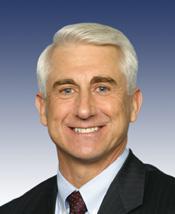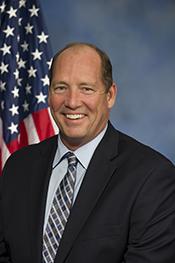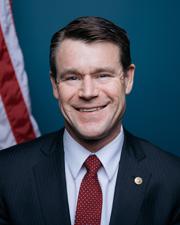0
Preventing Sex Trafficking and Improving Opportunities for Youth in Foster Care Act
3/14/2024, 12:48 PM
Congressional Summary of HR 4058
Preventing Sex Trafficking and Improving Opportunities for Youth in Foster Care Act - Title I: Identifying and Protecting Youth At Risk of Sex Trafficking - (Sec. 101) Amends part E (Foster Care and Adoption Assistance) of title IV of the Social Security Act (SSA) to require the state plan for foster care and adoption assistance to demonstrate that the state has developed policies and procedures for identifying and screening, and for determining appropriate state action and services with respect to, children over whom the state agency has responsibility for placement, care, or supervision who the state has reasonable cause to believe are victims of sex trafficking or a severe form of trafficking in persons, or are at risk of being such victims.
Authorizes a state, at its option, to identify and screen any individual under age 26 without regard to whether the individual is or was in foster care under state responsibility.
(Sec. 102) Adds as state plan requirements: (1) the documenting and reporting to law enforcement authorities of instances of sex trafficking, as well as (2) the locating of and responding to children who have run away from foster care.
(Sec. 104) Directs the Secretary of Health and Human Services (HHS) to report to Congress a summary of information on: (1) children who run away from foster care and their risk of becoming victims of sex trafficking; (2) state efforts to provide specialized services, foster family homes, or child care institutions for children who are victims of sex trafficking; and (3) state efforts to ensure children in foster care form long-lasting connections to caring adults, even when a child in foster care must move to another foster family home or when the child is placed under the supervision of a new caseworker.
Title II: Improving Opportunities for Youth in Foster Care and Supporting Permanency - (Sec. 201) Requires the state authority or authorities designated by a state plan for foster care and adoption assistance to: (1) develop a reasonable and prudent parent standard for the child's participation in age or developmentally appropriate extracurricular, enrichment, cultural, and social activities; and (2) apply this standard to any foster family home or child care institution receiving funds under title IV part E.
Directs the Secretary to provide assistance to states on best practices for devising strategies to assist foster parents in applying a reasonable and prudent parent standard in a manner that protects child safety, while also allowing children to experience normal and beneficial activities.
Requires that standards for child care institutions require, as a condition of any contract between an institution and the state agency, the presence on-site of at least one official designated as caregiver for a particular child who is authorized and trained to apply the reasonable and prudent parent standard to decisions involving the child's participation in age- or developmentally-appropriate activities.
Requires that such standards also include policies related to the liability of foster parents and private entities under state contract involving application of the reasonable and prudent parent standard to a child's participation in approved activities. Allows a waiver of any non-safety standards only on a case-by-case basis in relative foster family homes for specific children in care.
(Sec. 202) Limits to children age 16 or older the option, in an initial permanency hearing, of being placed in a planned permanent living arrangement other than a return to home, referral for termination of parental rights, or placement for adoption, with a fit and willing relative (including an adult sibling), or with a legal guardian. Prescribes documentation and determination requirements for such an option.
(Sec. 203) Gives children age 14 and older authority to participate in the development of their own case plans, in consultation with up to two members of the case planning team.
Requires any such case plan to: (1) describe the child's rights with respect to education, health, visitation, and court participation, and to staying safe and avoiding exploitation; (2) ensure such rights are explained to the child in an age-appropriate way; and (3) require the child to be given a copy of the document, verified by an acknowledgment signed by the child.
(Sec. 204) Requires the case review system to assure that foster youth under age 16, unless in foster care less than six months or discharged to reunite with the youth's family or to be adopted, receive upon discharge a birth certificate, Social Security card, health insurance information, and medical records. Requires that any foster youth attaining age 18 also receive a fee-free (or low-fee) bank or credit union account, unless the youth after consultation with the case planning team chooses not to receive one.
Title III: Improving Data Collection and Reporting on Child Sex Trafficking - (Sec. 301) Includes sex trafficking data in the adoption and foster care analysis and reporting system (AFCARS).
Directs the Secretary to report annually to Congress on the annual aggregate number of children in foster care identified as victims of sex trafficking or a severe form of trafficking in described persons, together with such other appropriate information relating to the identification of, and provision of services for, that population of children.
(Sec. 302) Requires the Secretary to include in the annual report to Congress on state performance on child protection and child welfare program outcome measures any state-by-state data on children in foster care who have been placed in a child care institution or another setting that is not a foster family home, as well as state-by-state data on children in foster care who are pregnant or parenting.
Title IV: Improving the Use of Technologies to Increase Child Support Collections - Amends part D (Child Support and Establishment of Paternity) of SSA title IV to give the employer the option of using electronic transmission methods prescribed by the Secretary for income withholding in the collection and disbursement of child support payments.





